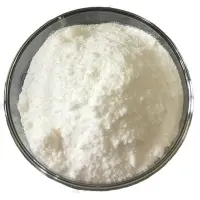-
Categories
-
Pharmaceutical Intermediates
-
Active Pharmaceutical Ingredients
-
Food Additives
- Industrial Coatings
- Agrochemicals
- Dyes and Pigments
- Surfactant
- Flavors and Fragrances
- Chemical Reagents
- Catalyst and Auxiliary
- Natural Products
- Inorganic Chemistry
-
Organic Chemistry
-
Biochemical Engineering
- Analytical Chemistry
-
Cosmetic Ingredient
- Water Treatment Chemical
-
Pharmaceutical Intermediates
Promotion
ECHEMI Mall
Wholesale
Weekly Price
Exhibition
News
-
Trade Service
*For medical professionals only
What medicine is used for gout? Come to evidence-based medication search to know!
Patients with gout are no strangers to colchicine, the joints are swollen and painful, and eating a piece of colchicine has become a habit
for many patients.
In addition to gout, colchicine is widely used in familial Mediterranean fever
.
In terms of medication safety, how to adjust the dose of special groups such as liver and kidney injury patients, the elderly, and children? Let's take a look!
1.
Adult kidney injury
▍ 1.
Gout attack to prevent gout attack:
For the prevention of gout attacks in patients with mild [estimated creatinine clearance (Clcr) 50-80 mL/min] to moderate (Clcr 30-50 mL/min) renal insufficiency, the recommended dose adjustment is not required, but patients should be closely monitored for adverse effects
.
For patients with severe renal insufficiency, the initial dose should be 0.
3 mg / day, and any dose increase should be carried out
under close monitoring.
To prevent gout attacks in dialysis patients, the starting dose should be 0.
3 mg and closely monitored
twice weekly.
Treatment of gout attacks: for the treatment of gout attacks in patients with mild (Clcr50-80 mL/min) to moderate (Clcr30-50 mL/min) renal insufficiency, the recommended dose does not need to be adjusted, but adverse reactions
should be closely monitored.
In patients with severe renal insufficiency, although it is not necessary to adjust the dose for the treatment of gout attacks, the course of treatment should not be repeated more than
every two weeks.
Alternative therapy
should be considered in patients with recurrent gout.
For patients undergoing dialysis, the total recommended dose for the treatment of gout attacks should be reduced to a single dose of 0.
6 mg
.
For these patients, the course of treatment should not be repeated more than once
every two weeks.
Colchicine tablets are not recommended for prophylaxis for gout attacks
in patients with renal impairment who are being treated with colchicine tablets.
▍2.
Familial Mediterranean fever (FMF)
should be administered with
caution to patients with moderate and severe renal insufficiency and patients undergoing dialysis.
For these patients, the dose
should be reduced.
Patients with mild (Clcr50-80 mL/min) to moderate (Clcr30-50 mL/min) renal insufficiency should be closely monitored for adverse effects of colchicine tablets, which may require a reduced dose
.
For patients with severe renal insufficiency (Clcr less than 30 mL/min), starting from 0.
3 mg / day, any dose increase should be carried out
with adequate monitoring of adverse reactions of colchicine in patients.
For patients undergoing dialysis, the recommended total starting dose should be 0.
3 mg (half a tablet)
per day.
The dose
can be increased under close monitoring.
Any dose increase should be carried out with adequate monitoring of adverse reactions in patients with colchicine[4].
Second, adult liver injury
▍ 1, gout attack to prevent gout attack:
For the prevention of gout attacks in patients with mild to moderate hepatic impairment, the recommended dose adjustment is not required, but patients should be closely monitored for adverse effects
after colchicine use.
Dose reduction should be considered to prevent gout attacks
in patients with severe hepatic impairment.
Treatment of gout attacks: for the treatment of gout attacks in patients with mild to moderate liver impairment, the recommended dose adjustment is not required, but patients should be closely monitored for adverse effects
after colchicine.
In the treatment of gout attacks in patients with severe hepatic insufficiency, the course should not be repeated more than
once every two weeks without the need to adjust the dose.
In these patients, who require treatment for recurrent gout attacks, alternative therapy
should be considered.
Colchicine tablets are not recommended for prophylaxis for gout attacks
in patients with liver impairment who are receiving colchicine tablets.
▍2.
Familial Mediterranean fever (FMF)
should be closely monitored for adverse reactions
after colchicine in patients with mild to moderate liver function impairment.
Patients with severe hepatic impairment should be considered for dose reduction [4].
Third, children's colchicine tablets are not recommended for the prevention or treatment of gout attacks in children
.
Familial Mediterranean Fever (FMF): Based on age, the recommended dose
of colchicine tablets for the treatment of children 4 years of age and older with familial Mediterranean Fever (FMF).
The following daily doses can be administered as a single or divided dose, 2 times a day: (1) Children 4-5 years:
0.
3-1.
8 mg
daily.
(2) Children 6-12 years old: 0.
9-1.
8mg
per day.
(3) Adolescents over 12 years old: 1.
2-2.
4mg
per day.
Fourth, the elderly due to the increased incidence of decreased kidney function in the elderly population, and the high incidence of other concurrent diseases in the elderly population, need to use other drugs, so when elderly patients receive colchicine treatment, if it is necessary to reduce the
dose of colchicine, careful consideration
.
What are the manifestations of colchicine overdose? How to deal with it? What other medicines can be used for gout? Where can I see the usage of more popular drugs?
On clinical decision-making - evidence-based medicineThe dry medication you want, here are it!
References: [1] American Geriatrics Society Beers Criteria Update Expert Panel:American Geriatrics Society 2019 updated AGS Beers Criteria(R)for potentially inappropriate medication use in older adults.
J Am Geriatr Soc 2019; 67(4):674-694.
[2] Drug information: colchicine tablets, Guangdong Peti Pharmaceutical Co.
, Ltd.
, Sinopharm H20113208; 2020/12/01.
[3]Product Information:COLCHICINE capsule,Hikma Pharmaceuticals USA Inc.
,Updated June 16,2020.
[4]Product Information:COLCHICINE tablet,Amneal Pharmaceuticals LLC,Updated January 14,2021.
[5]Product Information:GLOPERBA-colchicine solution,ROMEG Therapeutics,LLC,Updated February 5,2019.
▼▼▼Click to read the original article to download the App







